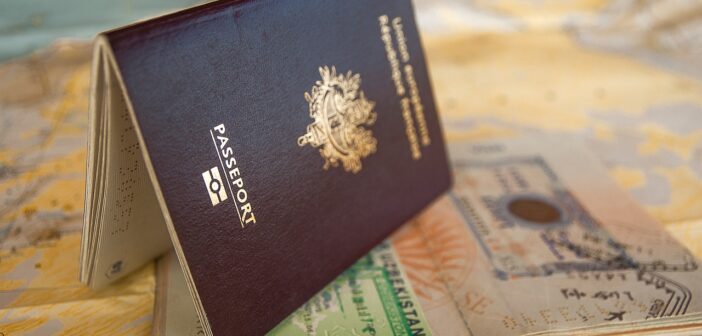photo:https://pixabay.com/
For athletes with aspirations to compete or perform professionally in the United States, the P-1A visa offers a tailored pathway. This article explores the P-1A Athlete Visa in detail, including its eligibility criteria, application process, duration of stay, rights, limitations, and comparisons with other visa categories, enriched with case studies and relevant statistics.
Understanding the P-1A Athlete Visa
The P-1A visa is designed for internationally recognized athletes or members of athletic teams. It allows entry to the U.S. for participation in specific events or competitions of a distinguished nature.
1. Eligibility Criteria for P-1A Athlete Visas
Eligibility for the P-1A visa hinges on international recognition. Key requirements include:
- Individual Athletes: Must demonstrate sustained international acclaim and recognition in their sport.
- Team Athletes: The team must be recognized internationally, and the athlete’s participation must be essential to the team’s success.
Insights from Case Studies:
- Case Study 1: A Soccer Star from Brazil: A prominent midfielder’s P-1A petition succeeded with support from FIFA World Cup participation records, endorsements from international organizations, and media coverage showcasing their global stature.
- Case Study 2: An Olympic Gymnast: A gymnast’s application included medals from world championships and letters from the International Gymnastics Federation, emphasizing their exceptional talent.
Industry Statistics:
- According to U.S. Citizenship and Immigration Services (USCIS), over 2,000 P-1A visas were issued to athletes in 2022, reflecting a steady growth in demand due to globalization in sports.
2. Application Process and Required Documentation
Application Process:
- File Form I-129: The petitioning employer or agent submits Form I-129, Petition for a Nonimmigrant Worker.
- Submit Supporting Evidence: Include proof of international recognition, event itinerary, and contracts.
- Pay Filing Fees: The standard fee is $460, with premium processing available for expedited review.
Required Documentation:
- Evidence of awards, media coverage, or participation in international events.
- Written consultation from an appropriate labor organization.
- Detailed contracts outlining the athlete’s role and compensation.
Tools for Streamlining the Process:
- USCIS’ Online Filing System: Allows employers to track petitions in real time.
- Document Compilation Platforms: Tools like DocuSign facilitate electronic signatures and secure document sharing.
3. Duration and Extension of Stay Under a P-1A Visa
Initial Duration:
- Individual athletes: Up to 5 years.
- Team athletes: Typically covers the duration of the event or season, not exceeding 1 year.
Extension Options:
Extensions can be granted in increments of 1 year for continued activities, provided supporting documentation is submitted.
Case Study:
A cricket player’s P-1A visa was extended for an additional season after demonstrating continued essential contributions to their team and renewed contracts.
4. Rights and Limitations for P-1A Visa Holders
Rights:
- Employment is permitted only for the petitioning organization or events specified in the application.
- Dependents (spouse and children under 21) may apply for P-4 status, allowing them to study but not work in the U.S.
Limitations:
- Athletes cannot switch employers without filing an amended petition.
- Unauthorized activities, such as coaching outside the specified scope, are prohibited.
Real-World Example:
A track and field coach was denied a P-1A amendment when attempting to add unrelated coaching assignments. This highlights the importance of adhering strictly to visa conditions.
5. Comparison Between P-1A and Other Visa Categories for Athletes
| Visa Type | Purpose | Eligibility | Key Differences |
|---|---|---|---|
| P-1A | International athletes | Must demonstrate international recognition | Best for athletes participating in team or solo international competitions |
| O-1 | Extraordinary ability | Requires exceptional ability in the field | Broader scope, including non-athletic fields |
| B-1 | Temporary business | Limited to short-term visits | Does not permit actual participation in professional events |
Choosing the Right Visa:
- A professional tennis player with global ranking benefits from the P-1A visa for continuous event participation.
- An Olympic coach might find the O-1 visa more suitable due to its broader eligibility criteria.
6. Frequently Asked Questions (FAQs)
1. Can P-1A visa holders bring their families to the U.S.?
Yes, dependents (spouse and children under 21) can apply for P-4 status, which allows them to live and study in the U.S. but not work.
2. Is premium processing available for P-1A visas?
Yes, premium processing is available, enabling expedited review within 15 calendar days for an additional fee.
3. Can a P-1A visa holder change employers?
Yes, but they must file a new Form I-129 petition with the details of the new employer and obtain USCIS approval before starting work.
4. What happens if an athlete’s contract ends early?
The visa holder must either leave the U.S. immediately or apply for a change of status if they wish to remain legally in the country.
5. Are amateur athletes eligible for a P-1A visa?
Generally, no. The P-1A visa is intended for professional athletes or teams with significant international recognition.
6. How long does the P-1A visa application process take?
Processing times vary, but with standard processing, it typically takes 2-6 months. Premium processing can reduce this to 15 days.
7. Can P-1A visa holders participate in promotional or endorsement activities?
Yes, as long as these activities are related to their athletic career and outlined in the original petition.
Conclusion
The P-1A Athlete Visa is a valuable tool for internationally recognized athletes aiming to compete in the U.S. By understanding its eligibility, application requirements, and limitations, athletes can streamline their path to success. Leveraging tools, professional guidance, and thorough documentation are essential for a smooth application process.
As sports continue to globalize, the P-1A visa’s relevance grows, bridging international talent and U.S. sports opportunities. For those seeking detailed assistance, consulting immigration professionals can ensure compliance and increase approval chances.
References
- U.S. Citizenship and Immigration Services (USCIS). “P-1A Internationally Recognized Athlete.”
- Immigration law firms specializing in sports visas, such as Fragomen and BAL Global.
- Industry data from Statista and sports organizations tracking international athlete participation.



